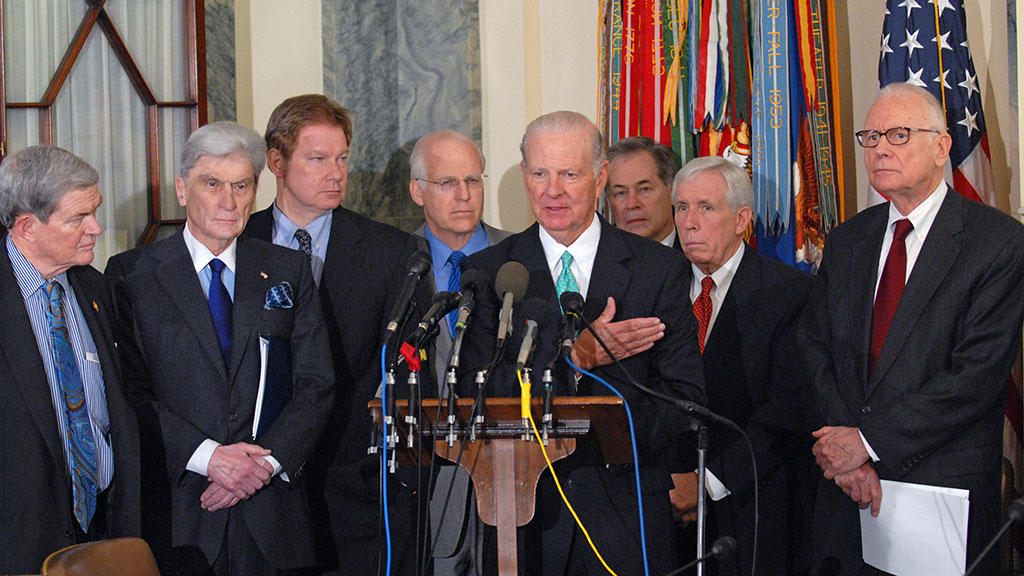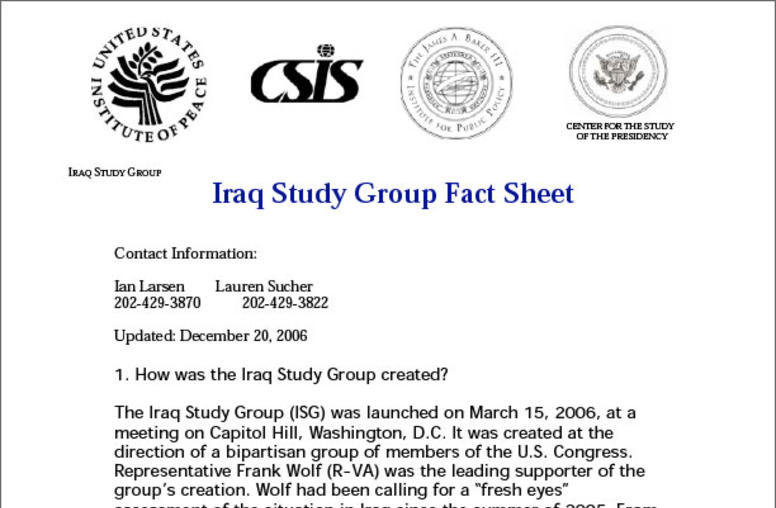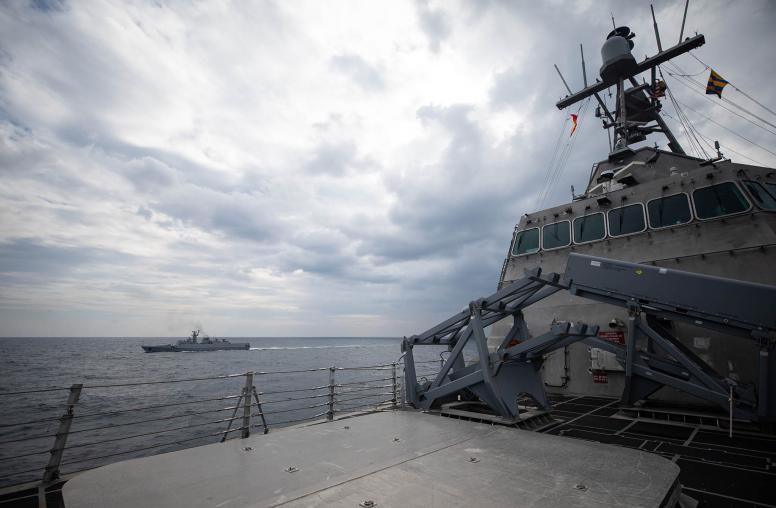At the urging of Congress, the United States Institute of Peace, together with the Center for Strategic and International Studies (CSIS), the Center for the Study of the Presidency (CSP), and the James A. Baker III Institute for Public Policy at Rice University, conducted and independent assessment of the current and prospective situation on the ground in Iraq, its impact on the surrounding region, and consequences for U.S. interests.

The bipartisan Iraq Study Group was led by co-chairs James A. Baker, III, former secretary of state and honorary chairman of the James A. Baker III Institute for Public Policy at Rice University, and Lee H. Hamilton, former congressman and director of the Woodrow Wilson International Center for Scholars.
The Iraq Study Group made a forward-looking, independent assessment of the current and prospective situation on the ground in Iraq and how it affects the surrounding region as well as U.S. interests.
The study group examined four broad topics:
- the strategic environment in and around Iraq;
- the security of Iraq and key challenges to enhancing security within the country;
- political developments within Iraq following the elections and formation of the new government;
- and the economy and reconstruction.
The final report was released to Congress, the White House, and the public on December 6, 2006.
Why did Congress select USIP to facilitate the Iraq Study Group?
- In 2005, also at the request of Congress, the United States Institute of Peace (USIP) successfully coordinated a similar bipartisan effort to evaluate our nation’s role and relationship with the United Nations. The Task Force on the United Nations' resulting report led to calls for immediate action and attention for reforming the United Nations.
- The United States Institute of Peace was created by Congress with the signing of the 1984 United States Institute of Peace Act. By law, USIP is governed by a bipartisan Board of Directors and is tasked with preventing, managing, and resolving international conflict and promoting stability in post-conflict areas. USIP also "thinks, acts, teaches, and trains" providing a unique combination of nonpartisan research, innovative program development, and hands-on peacebuilding support.
- With over seventy foreign policy specialists whose expertise bring decades of government, military, university, NGO, and other valuable experience to the international arena, USIP analysts are uniquely poised to advise, assist, and convene efforts such as the Iraq Study Group.
- USIP has been operating on the ground in Iraq since 2004, working with Iraqis to reduce interethnic and interreligious violence, speed up stabilization and democratization, and reduce the need for a U.S. presence in Iraq.
*Note: USIP coordinated the process and provided analysis for the Iraq Study Group, but left drawing the conclusions and policy recommendations to the Group itself.
USIP's Role with the ISG
USIP was the facilitating organization for the Iraq Study Group (ISG), co-chaired by James A. Baker, III, and Lee H. Hamilton. As such, USIP is the repository for the ISG’s official report, titled The Iraq Study Group Report: The Way Forward - A New Approach, which was downloaded more than 1.5 million times from USIP's Web site in the first two weeks after the launch of the report on December 6, 2006.
USIP facilitated the bipartisan ISG at the urging of Congress. The ISG’s mandate was to conduct a forward-looking, independent assessment of the current and prospective situation on the ground in Iraq, its impact on the surrounding region, and consequences for U.S. interests. Three organizations supported USIP in its work facilitating the ISG: the Center for Strategic and International Studies (CSIS), the Center for the Study of the Presidency (CSP), and the James A. Baker III Institute for Public Policy at Rice University.
As facilitator, USIP provided scholarly and logistical support to the ISG. It maintained an in-house Iraq expert committee and external Expert Working Groups that provided the ISG with the briefing papers and policy analyses that helped finalize their conclusions. It also coordinated the ISG’s interviews with top U.S. and foreign officials and led the group’s trip to Iraq in the Summer of 2006.





